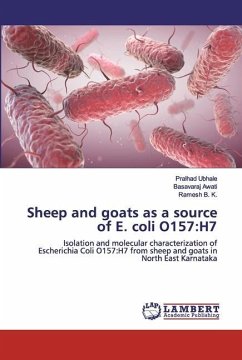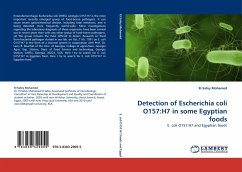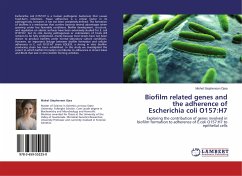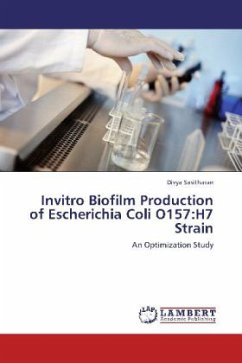E. coli O157: H7 is an emerging food borne pathogen having zoonotic importance. Though the primary reservoir of this serotype is cattle; sheep and goats are also considered as the main reservoir for E. coli O157: H7, which act as asymptomatic carriers. Conventional cultural methods are time-consuming to detect E. coli O157: H7 in food borne outbreaks and have less specificity and sensitivity. Multiplex PCR (mPCR) tends to be specific, more rapid and reliable. In this study, mPCR was taken as a confirmative diagnostic test and the results obtained by cultural isolation, biochemical characterization and latex agglutination test were compared with that of mPCR to estimate the sensitivity and the specificity. The results obtained show that the standardized mPCR protocol is a rapid, highly sensitive, species-specific and reliable method for the detection of the pathogenic E. coli O157: H7 and could be used for identification and molecular characterization of E. coli O157: H7 in suspected food and water borne outbreaks, disease investigations and routine analysis etc.
Bitte wählen Sie Ihr Anliegen aus.
Rechnungen
Retourenschein anfordern
Bestellstatus
Storno








